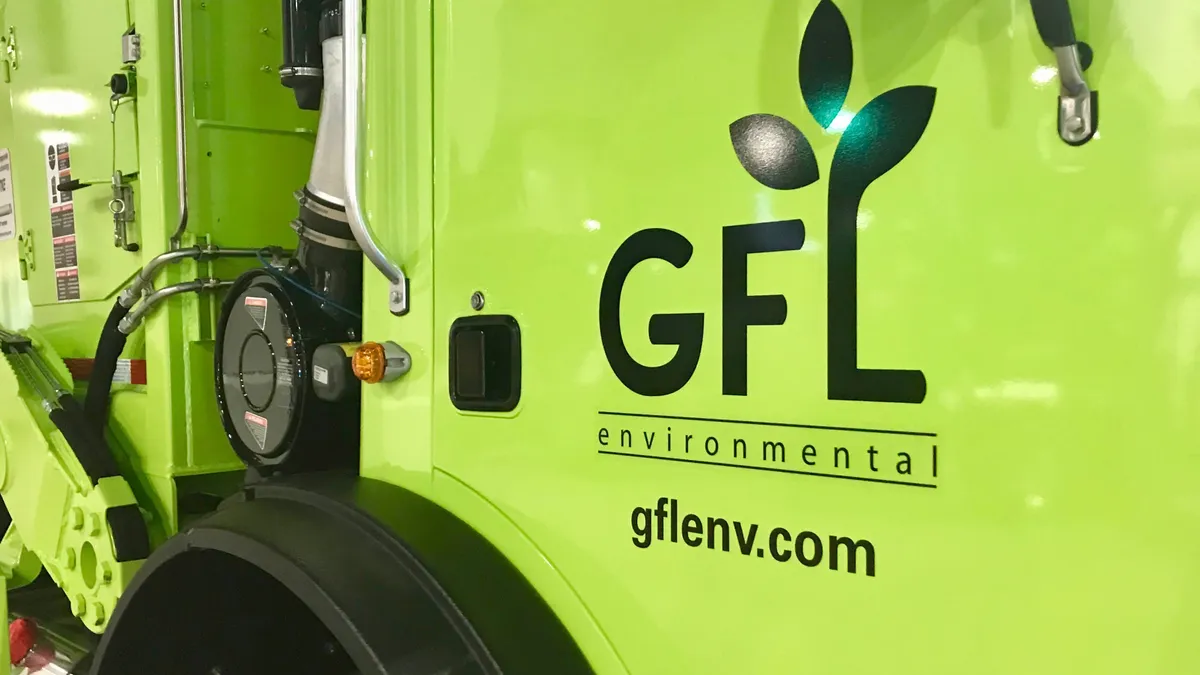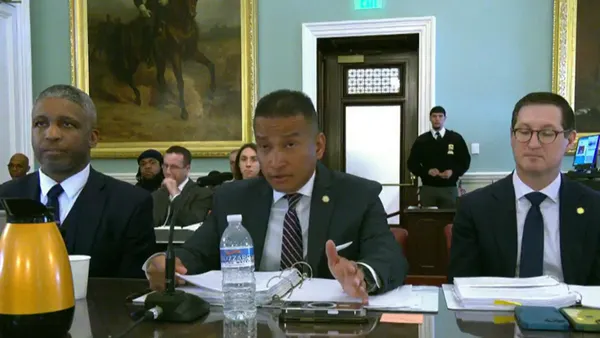UPDATE: Feb. 4, 2020: GFL Environmental finalized the purchase of Michigan-based American Waste and all of its subsidiaries on Feb. 1, per a recent filing with the Securities and Exchange Commission (SEC).
Dive Brief:
- Toronto-based GFL Environmental is in the process of acquiring Michigan's American Waste, a vertically-integrated solid and liquid waste company, for $380 million. The deal involves $360 million in cash and $20 million in non-voting GFL shares.
- Kalkaska-based American Waste currently offers a range of services throughout Northern Michigan and Pennsylvania, from collection to disposal and recycling. The company's portfolio includes the Wexford County Landfill, one MRF and a C&D recycling facility, among other assets.
- A recent filing with the SEC indicates GFL entered into an equity purchase agreement for all of American's outstanding stock on Dec. 6, 2019. The Federal Trade Commission granted early termination of the mandatory merger waiting period on Jan. 2.
Dive Insight:
The Canadian company's initial foray into the United States started with the acquisition of Michigan-based Rizzo Environmental Services in 2016, for a reported CA$400 million. GFL has dramatically expanded its U.S. presence in the years since, most notably with a 2018 deal valuing Waste Industries at $2.8 billion, and now has operations in 23 states. This has included a variety of tuck-in acquisitions, along with a larger deal to acquire Virginia-based County Waste for $480 million that closed on Jan. 1.
While GFL's acquisition of Rizzo came with a wide network of collection assets – including a municipal contract with Detroit that was renewed last year – the company's infrastructure in Michigan wasn't vertically-integrated. This has left GFL more exposed to pricing at third-party sites in the region.
It remains unclear precisely how these new assets will fit into GFL's portfolio, and neither company responded to requests for comment ahead of publication, but the transaction has clear advantages.
According to the most recent state report (FY18), the Wexford County Landfill was projected to have more than 60 years of remaining capacity at the time. American purchased it from the city of Cadillac in 2011. Per GFL's latest SEC filing, excess landfill capacity in both Michigan and upstate New York allows the company to offer "very competitive pricing for the large volume of solid waste that we control through our network of transfer stations in Ontario and through our collection operations in Michigan."
American's MRF is also newer than many in the U.S. According to the company's website, American spent $12 million to build a new single-stream facility in Traverse City that opened in 2011.
Last year, the site also received a $474,000 grant from Michigan's Department of Environment, Great Lakes and Energy (EGLE). This was reportedly used to fund a $1.3 million MRF upgrade, including "fiber optical scanning and sorting equipment," to create a higher quality mixed paper commodity for state buyers. This grant was announced at the company's MRF last summer in conjunction with EGLE's launch of a statewide education campaign.
American traces its roots back to the founding of Northern A-1 Sanitation Services in 1971 by Edward Ascione, Sr. His sons, Michael and Edward, founded American Waste in 2002 and have since led the company as co-presidents. Pending expected closure of this deal during Q1, their business will be the latest of many to be subsumed in the industry-wide consolidation trend. A Jan. 10 release indicates the two brothers will stay on to manage the company's operations under GFL.
Following the abrupt cancellation of its IPO last fall, GFL pursued a private offering worth $775 million in December in part to fund these latest two deals. The company's filing indicates it had more than CA$6.9 billion worth of debt through Q3 of 2019 prior to this offering. CEO Patrick Dovigi said he hasn't ruled out IPO plans in the future.
While GFL's filing indicates it "will likely require additional financing, including debt, to pursue certain acquisitions," and the company still reported a net loss through Q3 of last year, revenue has also climbed significantly as acquired assets get integrated. The company now reports earning more solid waste revenue from its U.S. business than in Canada.














